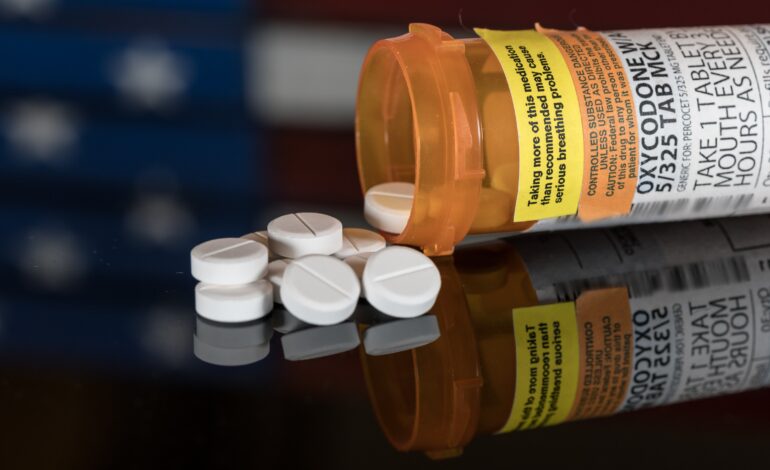DEARBORN — Hassan Samir Saad, 33, and Ali Hussein Keblawi, 26, both of Dearborn, have been charged for their part in an illegal opioid operation out of a pharmacy in Redford.
On Wednesday, acting U.S. Attorney for the Eastern District of Michigan Saima Mohsin announced an indictment against Saad and Keblawi as well as two patient recruiters from Detroit for conspiracy to illegally distribute prescription drugs, and other opioid-related charges.
The two people who acted as patient recruiters in the opioid ring are Dangelo Terrell Stephens, 38, and Latasha Maria Neely, 38.
The indictment alleges that from June 2020 through July 2021, Stephens and Neely worked as patient recruiters/marketers, who would bring “patients” or patient information to area doctors and clinics.
Those doctors and clinics, which include the owner, operators and physician at Tranquility Wellness Center, who have been indicted in a related case, would write or help write controlled substance prescriptions in the “patient” names, without medical necessity and outside the scope of professional medical practice, in exchange for cash payments.
The indictment says Saad and Keblawi knew that the prescriptions were illegitimate and by dispensing the controlled substances, they failed to exercise their professional responsibility to determine that the prescriptions were issued for a legitimate medical purpose.
As part of the conspiracy, Stephens and Neely needed the cooperation of area pharmacies, including their owners and employees. Saad was a licensed pharmacy technician who worked at and owned Heritage Medical Pharmacy, LLC in Redford. Keblawi was an employee at Heritage. In exchange for cash, Saad and Keblawi filled the unlawful prescriptions obtained by Stephens and dispensed, or helped dispense, controlled substances to Stephens and not to the patients to which they were prescribed.
The indictment says Saad and Keblawi knew that the prescriptions were illegitimate and by dispensing the controlled substances, they failed to exercise their professional responsibility to determine that the prescriptions were issued for a legitimate medical purpose.
Stephens and Neely then sold the controlled substances on the street.
The primary prescription drug-controlled substances illegally prescribed, filled at pharmacies and distributed included Schedule II controlled substances Oxycodone, Oxymorphone and Oxycodone-Acetaminophen (Percocet). These drugs were in high demand on the illegal street market, particularly Oxycodone 30mg and Oxymorphone 40mg.
Stephens is also charged with three counts of distributing Oxycodone pills and Stephens, Saad and Keblawi are charged with one count of distributing and aiding and abetting the distribution of Oxycodone pills.
According to the indictment, Stephens and Neely unlawfully distributed a combined total of more than 28,000 dosage units of Schedule II opioid prescriptions during the conspiracy. These controlled substances had a conservative street value more than $775,000.
The indictment says Saad and Keblawi also unlawfully dispensed a combined total of more than 5,500 dosage units of Schedule II controlled substances, carrying a conservative estimated wholesale street value of more than $150,000.
The road to addiction often begins with prescription drugs. — Acting U.S. Attorney Saima Mohsin
While most of the unlawful controlled substance prescriptions were paid for in cash, both controlled and non-controlled “maintenance” medications were billed to health care benefit programs by pharmacies. Billings to the Medicare and Medicaid programs for medically unnecessary prescription drug medications and maintenance medications during the conspiracy exceeded $200,000
“The road to addiction often begins with prescription drugs,” Mohsin said. “It is for this reason we are focusing our efforts on removing individuals who contribute to the devastating opioid crisis in this country.”
“The FBI is focused on stemming the supply of illegal opioids into our communities, especially those illegally distributed by doctors and clinics,” said Timothy Waters, special agent in charge of the FBI’s Detroit Division. “While we continue to work with our partners to combat this crisis that devastates communities, we ask for the public’s help by reporting any information related to the illegal sale and distribution of opioids.”
The case was investigated by special agents and task force officers from the FBI and the Department of Health and Human Services-Office of the Inspector General.
An indictment is only a charge and is not evidence of guilt.






Leave a Reply